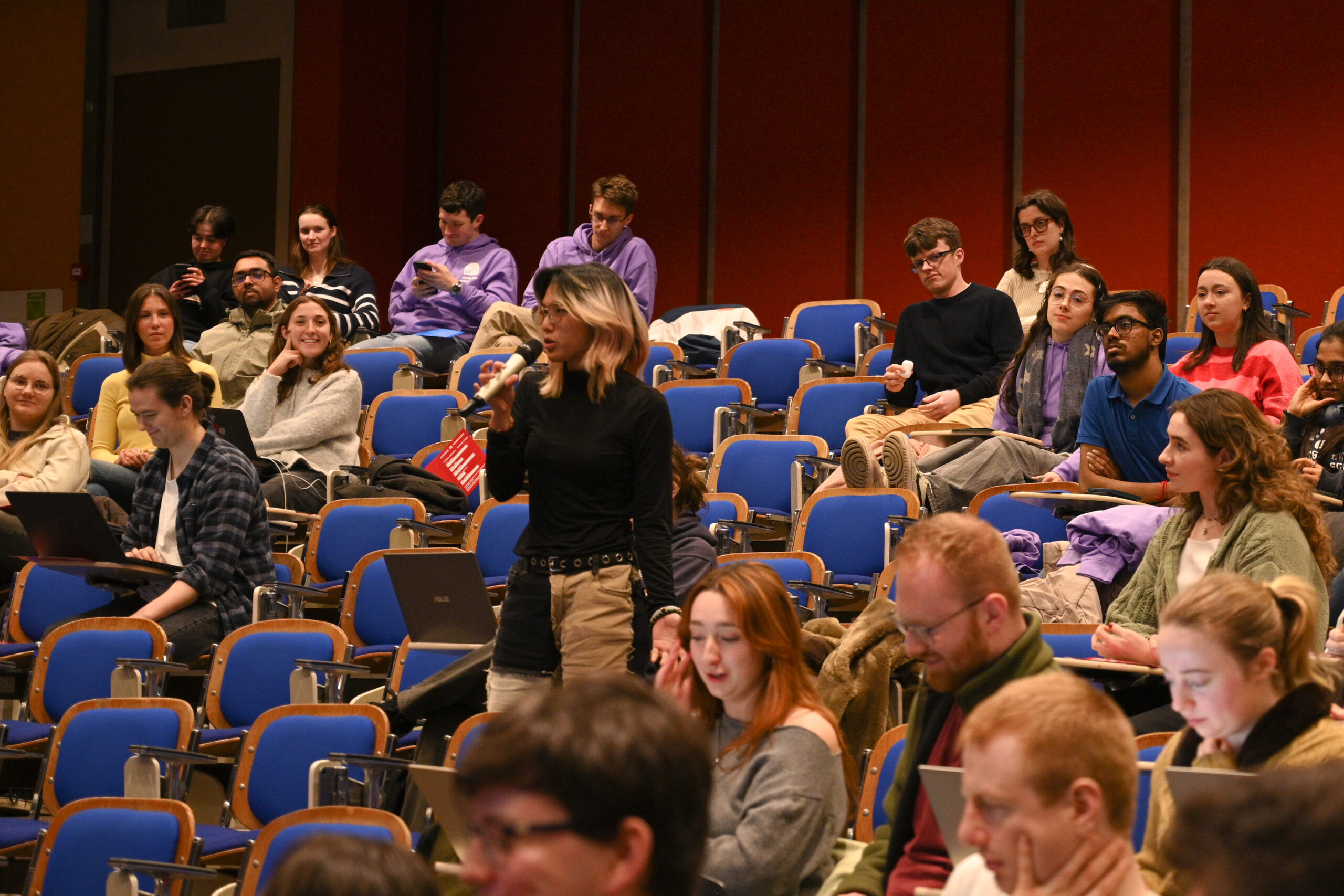During the post-referendum Pav Friday, my flatmate was asked whether she voted, to which she promptly answered “yes, for Kamala.” She was a part of the 96% of students, who didn’t vote over the three day long referendum. There could be many reasons for lower turnout: rain, a big workload on students, perhaps even this referendum was overshadowed by the overnight guest policy change, which also took place in the second half of last week. But it would be irresponsible to not examine the possible causes and implications of such an abysmal turnout.
According to chapter 7.5.1 of the Union’s constitution, a constitutional referendum must meet a requirement of at least 500 members. 804 votes were cast last week, three of which were dismissed. From the 801 votes left, 333 were against. This means that the 58% which supported the resolution, actually represents 2.13% of the total student body. The turnout on the opposing side wasn’t better. 42% of votes were against, but this amounts to 1.51% of students. Of course, no one can be forced to participate in referenda or elections, that’s one of the greatest achievements of democracy. But when less than 5% partake, maybe it’s time to ask yourself why.
As I said, many events could steal the spotlight from this referendum. But nothing short of a cataclysm or exam season would affect over 22,000 people. Perhaps the vast majority just does not care. Indifference is, of course, an acceptable position in a pluralistic society. No one can be forced to feel responsible for voting or to truly care. But I believe that such high levels of indifference should be taken as a sign. For many students the Student’s Union is an organisation that they think about once a year, when their friends share some of the campaign spots to their stories. Other than that, despite the Union actively trying to improve the quality of life on campus, not many students give their SU much thought. Even for sabbatical elections, the turnout is well below 50%. Most students go about their education without ever directly interacting with the Union.
Over the last two presidencies, the Union showed a hard-to-miss turn towards activism. This process, culminating with the referendum, was set in motion last year after the attempted impeachment of the then-president László Molnárfi. The previous wording of the Constitution insisted that the TCDSU must be independent from all kinds of ideology – racial, religious, and political. The broadness of the wording forced the Union to focus on day-to-day campus issues rather than engaging in political activism of any sort. This provision made the Union truly for everyone – as it was apolitical, students’ personal politics were not in conflict with their SU membership. But as the Union slides further and further into politicised action, it starts to alienate more and more students. The issue lies not in the Union being political per se, but in the fact that it is political and mandatory. Every student is a member and cannot opt out from paying membership fees. This approach makes sense when the Union is focused only on student matters, which every student benefits from – like the safety net provided by the TCDSU whenever conflict with lecturers arises. But when the Union moves towards political activism, it should not force students to be a part of it.
This approach is supported even by Molnárfi himself, who supports a politically active Union, but believes that then “students should have the right to opt-out”. The point of my article is not to assess the politics of the SU, and I believe it is important to point this out. I believe that the Union should be free from any politics if it wishes to keep being mandatory. These two qualities are directly contradictory. If everyone is forced into becoming a member, then the SU must do everything in its power to avoid alienation of students. And taking political action runs a huge risk of alienation, especially when it refers to members of the Trinity community, which prides itself on the importance of diversity. Diversity does not mean only that of appearances and identities, but of beliefs and ideals too. A Union which shifts any direction pushes away those who lean the other way. And without them having an option to opt-out of their membership, they are left with no choice but to cope with being misrepresented by an organisation which is supposed to represent and defend the interest of its members.
I think that the overwhelming indifference to the referendum shown by the student body should also be taken into account when this Union plans its action, and by all Unions to come. Students simply don’t care about the Union’s actions. Many came to Trinity to acquire an education rather than get involved politically. The Student Union’s efforts to help marginalised groups are admirable, and the activism of the Union’s members commands respect. However I am not convinced that the TCDSU is the place to engage in that. The Union’s constitution describes it as the “sole representative organisation for undergraduate students” which should put even more emphasis on not alienating any student – as we have nowhere else to go. A union which cannot be opted out of must not pursue political action. And the overwhelming indifference shown in this referendum should only reinforce the Union’s independence from any sort of ideology. Democracy means the rule of the majority with respect to the laws of the minority. But this referendum only proved that the mandate with which the Student Union acts, is that of a minority, and I believe that the upcoming Sabbatical election will only further this point. Maybe then the majority opinion will be taken into account.







